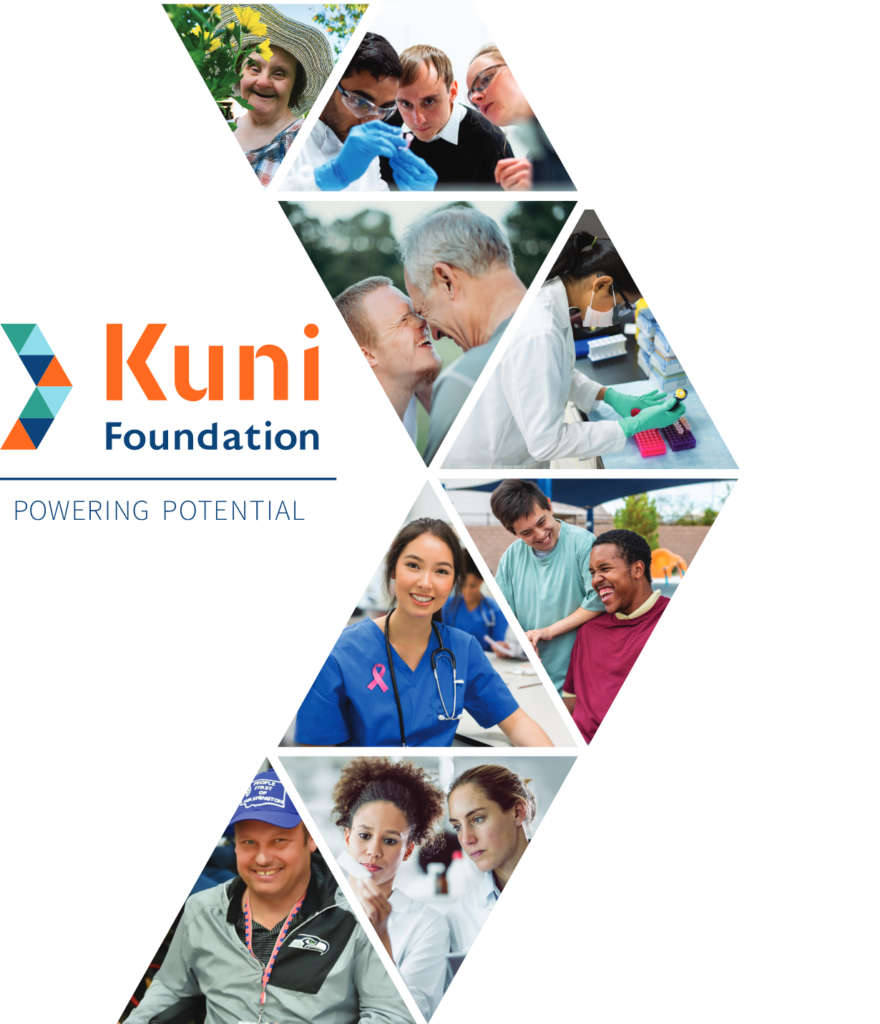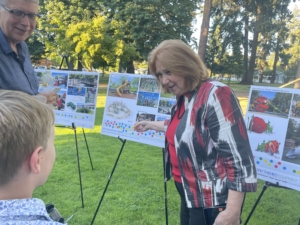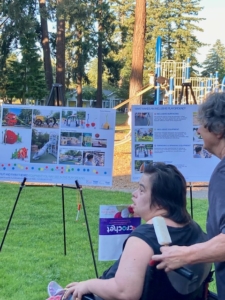Aligning Purpose and Partnership
The power of human potential fuels our work. From pioneering approaches to cancer research to initiatives that accelerate inclusion for people who experience intellectual and developmental disabilities (IDD), we embrace the opportunity to learn and lean into risk.
We embrace our work with a strong sense of curiosity and a commitment to collaboration, engaging as advocates, connectors and partners. The scale of impact and system change we strive for requires a multifaceted approach, and we deploy grantmaking, advocacy and mission-investing in service to our community.

2023: A Year of Inspiration
2023 was an exciting, dynamic year as our partners advanced compelling breakthroughs in cancer research and expanded opportunities for people with intellectual and developmental disabilities (IDD). Through grantmaking and impact investing, we provided $11.6 million to visionary organizations throughout the Pacific Northwest that are sparking creative solutions for stronger, healthier, and more inclusive communities.
Providing catalytic, early-stage cancer research funding is a cornerstone of our work, and in 2023 we were honored to receive the Brotman Award for Philanthropic Innovation from UW Medicine, one year after being named a Presidential Laureate.
We continue to implement the recommendations reflected in our 2020 data study focused on the housing needs and preferences of people with IDD. The study identified the necessity — and opportunity — for affordable housing providers to include the IDD community when planning for and developing new housing models. In 2023 we collaborated with our partners to create the first IDD housing program track for the Housing Oregon conference, creating connections between IDD housing, policy and service providers and the affordable housing industry.
Reflecting our commitment to the Pacific Northwest’s rural communities, more than half of our IDD grants were awarded to organizations that provide housing, employment and education in rural areas. Women also led the way in 2023, with organizations and initiatives led by women receiving 53 percent of all grants awarded. We’re honored to support the innovations of women making history in cancer research and in programs and policies that advance inclusion and opportunity for people with IDD.
The 2023 Impact Report celebrates the creative, impactful work of our community partners. Their efforts bring to life the legacy of our founders, Wayne and Joan Kuni, our mission to amplify inclusion, housing, and quality of life for people with IDD and propel innovation and discovery in cancer research.
Grantmaking
Three grant programs activate our mission: Imagination, Discovery and Transformation Grants.

Imagination Grants
Discovery Grants
Transformation Grants
Imagination Grants serve as a catalyst for strengthening or expanding the capacity of our nonprofit partners. These one-year grants fulfill an unmet need, provide general operating support and advance new ideas or approaches.Imagination Grants in support of the IDD community enhance health, well-being and inclusion. Funding supports assistive technology, advocacy initiatives, planning for new housing solutions, and program support for housing, health, education, employment and the arts. Imagination Grants for cancer research fund pilot programs, next-stage research or program expansion, measurement and infrastructure.
Discovery Grants support early and mature efforts to improve cancer detection, treatment and outcomes. These one- to three-year grants emphasize collaborative approaches. Efforts might utilize artificial intelligence, biotechnology, therapeutics, advanced diagnostics or other methods. We seek partners who are committed to reaching beyond the lab to foster community inclusion, understanding and trust. Programs include upstream efforts to diversify the cancer research workforce and targeted science that improves detection and treatment for people of color.
Transformation Grants advance person-focused housing solutions that meet the diverse needs of the IDD community in both urban and rural areas. The lack of inclusive, affordable housing has reached a crisis in the United States, and has a greater impact on people who experience IDD. These one- to three-year grants provide funding for new and existing housing models, including planning and pre-construction, universal design, land and other costs associated with construction. We champion the exploration of new, inclusive and community-based approaches that are affordable, scalable and sustainable.

In 2023, we awarded $11.6 million in support of cancer research and accelerating inclusion for people with IDD in Oregon and Washington.

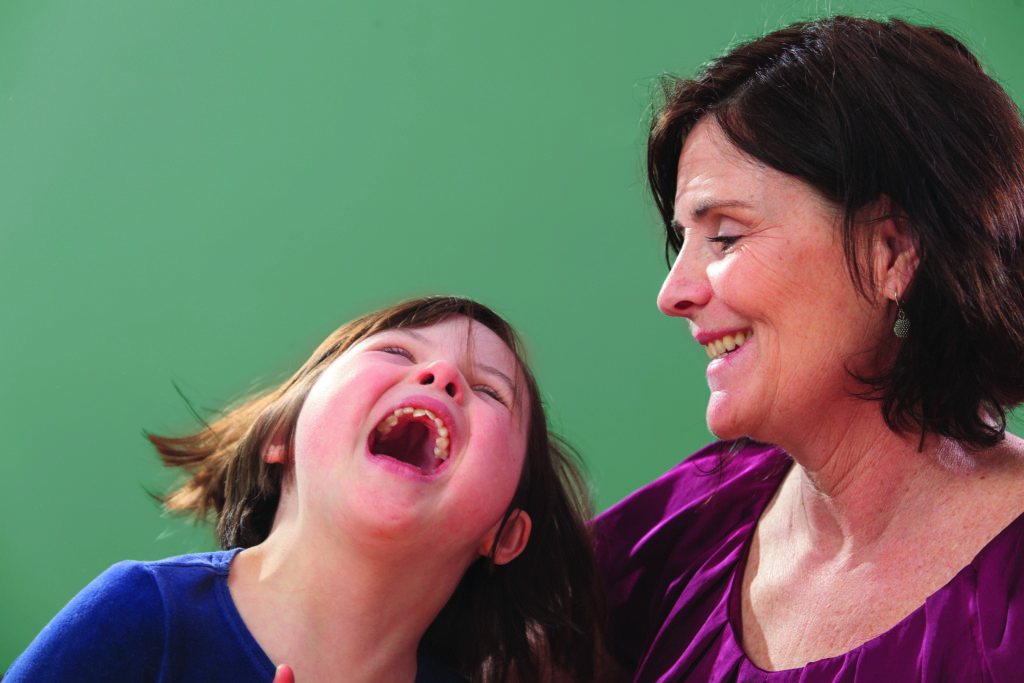
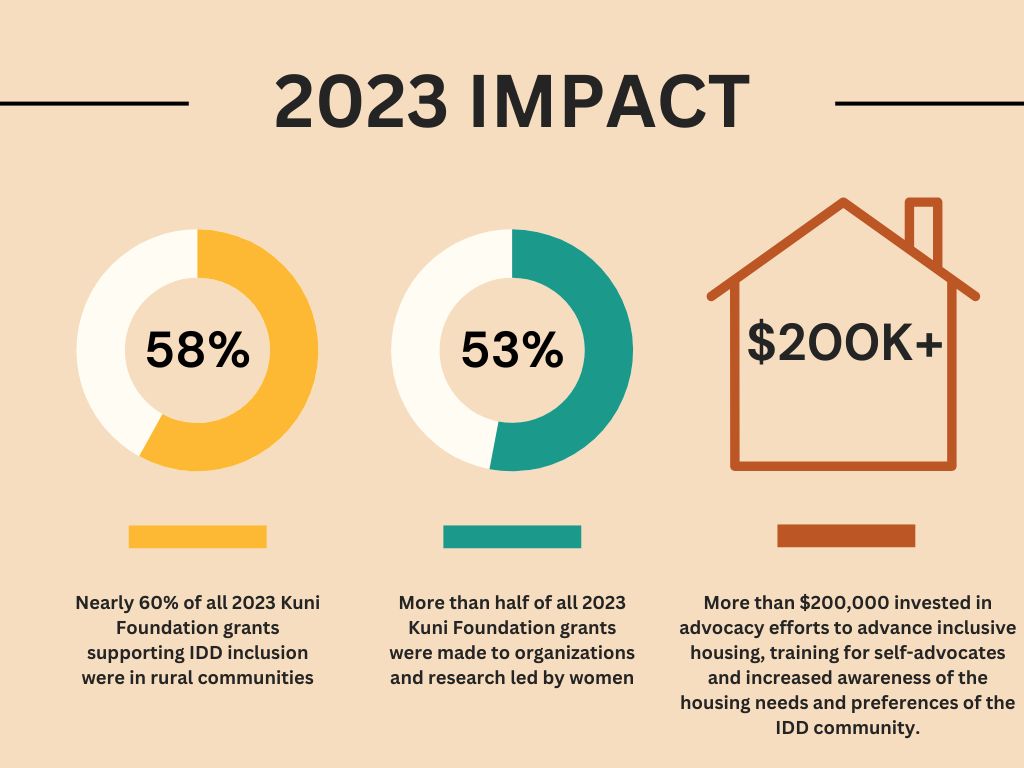
UW Medicine Honors Kuni Foundation with the Brotman Leadership Award for Philanthropic Innovation
In 2023 the Kuni Foundation was honored to receive the Brotman Leadership Award from UW Medicine. The award, established in 2007 in honor of Jeffrey and Susan Brotman, recognizes people and organizations whose generosity and visionary leadership have been central to UW Medicine’s work in research, teaching and patient care.
The Kuni Foundation’s support of adult oncology research at Fred Hutchinson Cancer Center, which serves as the cancer program for UW Medicine, and at the Cancer Vaccine Institute at UW Medicine fills a vital gap, accelerating progress where it’s needed most. Since 2020, the Kuni Foundation has provided 47 grants, totaling more than $15.4 million, to UW Medicine researchers.

As an organization with deep roots in Clark County, the Foundation partnered with the City of Vancouver to champion inclusive, outdoor spaces. Vancouver’s Fruit Valley Neighborhood Park will receive a new, inclusive playground, thanks to a $1 million grant from the Kuni Foundation. The funding will help Fruit Valley Park welcome more visitors as the playground is transformed into an inclusive play area for people of all abilities.
Scheduled to open in 2025, the playground’s theme and design is based on extensive community input. The playground will honor the legacy of community leader and mother, Elizabeth Austin, who championed inclusive spaces that were accessible to every child. She engaged in this transformative work before our community lost her to cancer in 2021, and the Elizabeth Austin Playground at Fruit Valley Park will be a tribute to her warm and welcoming nature and love for creating community.
A $164,000 Discovery grant to the Fred Hutchinson Cancer Center exploring the dose and frequency of immune checkpoint inhibitors (ICI) could change the treatment landscape by reducing medical costs, allowing patients to stay on lifesaving treatment longer. Researchers Lisa Tachiki, MD and Shailender Bhatia, MD, are exploring how shifting the frequency of the same dose of ICI can extend the efficacy of the treatment by years. Their study, recently published in the journal Cancer Immunology, Immunotherapy, shows that reducing the frequency at which patients with advanced melanoma and Merkel cell carcinoma receive ICIs could help keep them on lifesaving treatments longer, while saving both time and money. Drs. Tachiki and Bhatia hope their work will help other clinicians map out long-term plans for patients who have responded well to ICIs.

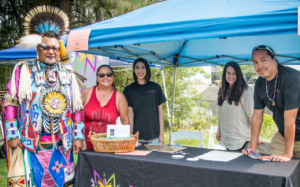 Pancreatic cancer, the third leading cause of cancer mortality in the US, disproportionately affects Native Americans. Through a three-year, $900,000 grant from the Kuni Foundation, Oregon Health and Science University is working to address this disparity, by fostering collaboration with tribal healthcare providers and facilitating participation in clinical trials. OHSU and the Confederated Tribes of Warm Springs have begun work on a co-designed culturally appropriate Native American pancreatic cancer tissue registry.
Pancreatic cancer, the third leading cause of cancer mortality in the US, disproportionately affects Native Americans. Through a three-year, $900,000 grant from the Kuni Foundation, Oregon Health and Science University is working to address this disparity, by fostering collaboration with tribal healthcare providers and facilitating participation in clinical trials. OHSU and the Confederated Tribes of Warm Springs have begun work on a co-designed culturally appropriate Native American pancreatic cancer tissue registry.
 Dr. Kemi Doll’s research, funded by a $1.2 million grant from the Kuni Foundation, focuses on early detection of endometrial cancer in Black women. As endometrial cancer mortality rates worsen, this research aims to create racially equitable diagnostics to help doctors be more accurate when someone comes in with symptoms and catch endometrial cancer at an earlier stage. Through strong partnerships with three universities, they’re developing new screening guidelines, utilizing data from the Carolina Hysterectomy Cohort for earlier detection and better health outcomes.
Dr. Kemi Doll’s research, funded by a $1.2 million grant from the Kuni Foundation, focuses on early detection of endometrial cancer in Black women. As endometrial cancer mortality rates worsen, this research aims to create racially equitable diagnostics to help doctors be more accurate when someone comes in with symptoms and catch endometrial cancer at an earlier stage. Through strong partnerships with three universities, they’re developing new screening guidelines, utilizing data from the Carolina Hysterectomy Cohort for earlier detection and better health outcomes.
Before Kuni Foundation funding, we didn’t have the kind of dataset needed to help us understand how the clinical care and diagnostic process may or may not be contributing to this problem of late-stage diagnosis among Black women.
— Kemi Doll, MD, MSCR, Fred Hutch physician and associate professor in the Department of Obstetrics and Gynecology at the University of Washington School of Medicine
Accessory Dwelling Units (ADUs) provide an exciting pathway to affordable housing for people with intellectual and developmental disabilities, and two pilot projects – one in Seattle and one in Portland – are blazing a trail toward possibility.
A $100,000 grant helped Parkview Services launch the construction of six ADUs in the Seattle area for people with IDD. Parkview Services also received a grant of $75,000 to explore housing ownership for people with IDD through a shared equity co-op model. In Portland, a multi-year pilot project grant to Community Vision helped the organization navigate city processes and policies and supported the development of four ADUs. Both organizations teamed up to present their innovative approach at the 2023 Housing Oregon conference, an affordable housing conference attended by more than 800 people.
Founded in 1977, Horizon Project, Inc. is the largest provider of residential, employment and community living supports to people with intellectual and developmental disabilities (IDD) in Umatilla County. The nonprofit is constantly evolving and innovating, creating vibrant public-private partnerships and integrating technology to enhance independence and safety for people with IDD.
A pioneer in the development of affordable, inclusive housing, Horizon Project worked with local and state agencies to leverage public and private funds to develop Pioneer Commons, the first housing community in Oregon to integrate residential and supported living units into a larger affordable workforce housing development.
Since 2020, the Kuni Foundation has provided more than $1 million to create the STEP Center for Independent Living in Hermiston and the development of South Hill Commons in Pendleton, which integrates residences and supported living apartments for people with IDD into a larger 70-unit affordable housing community. A 2023 grant of $200,000 supports a Technology First approach to embedding programs and supports throughout the organization.

The Cancer Vaccine Institute at University of Washington Medicine is the largest academic research center dedicated to the investigation and development of cancer vaccines. Led by Dr. Nora Disis, the Institute has a world-class team of multidisciplinary scientists, medical professionals, and patients driving innovative cancer immunology research and translating it into effective treatments.
The Foundation has awarded nearly $2 million through five grants supporting a range of efforts, from research to clinical trials. The Insistute’s vaccines are designed to train the body’s immune system to destroy cancer cells, while protecting healthy cells. This revolutionary approach is safer and less toxic than treatments such as radiation and chemotherapy. The Institute has vaccines at different stages of development designed to treat cancer, prevent its recurrence and eventually to prevent cancer from occurring.
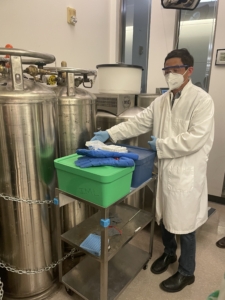
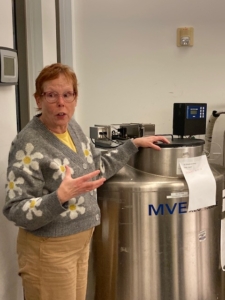

Advocacy
Addressing Unmet Housing Needs - Kuni Foundation Partners with Housing Oregon to Highlight IDD Housing Opportunities
The Kuni Foundation sponsored a five-session conference track at the Housing Oregon annual conference that explored the challenges and opportunities in addressing the unmet housing needs for people with intellectual and developmental disabilities.
The conference track was designed to create connections between affordable housing developers and IDD service providers and to raise awareness of the hidden housing crisis facing peole with IDD. Housing Oregon is a statewide association of more than 75 affordable housing and community development organizations, businesses and government agencies focused on expanding affordable housing.
If you missed the opportunity to attend the Housing Oregon Conference, four of the IDD sessions are available on the Housing Oregon YouTube Channel:
Deepening Disparities: Stable Housing Needs for our Neurodiverse Neighbors
Supported Living: Making Affordable Housing Work for Everyone
Turning up the Volume: IDD Advocacy Wins and the Road Ahead
Accessory Dwelling Units as a Path Toward Inclusive IDD Housing
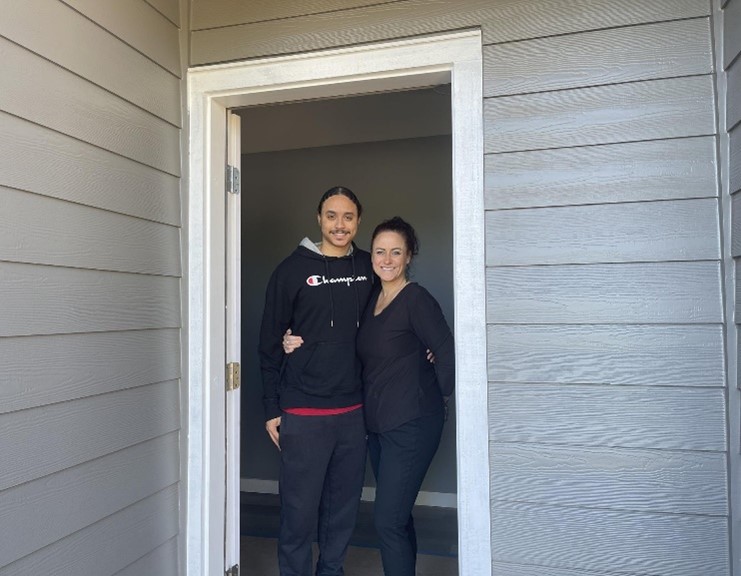
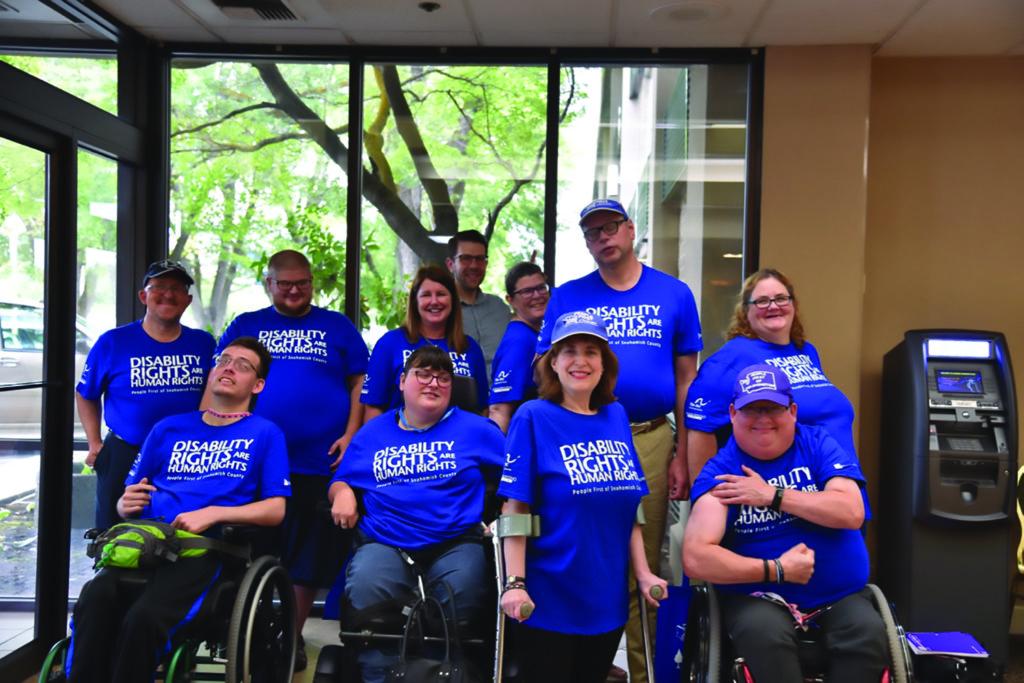

The Kuni Foundation Award for Empowering Independence
At the 2023 Housing Oregon conference, a new industry award was unveiled: The Kuni Foundation Award for Empowering Independence. The award honors an individual, organization, project, or program that has demonstrated exceptional innovation in affordable housing for individuals with intellectual and developmental disabilities. In addition to peer recognition the recipient receives a $1,000 grant.
Congratulations to Jaclyn LaRue, Executive Director of Mainstream Housing based in Eugene/Springfield for being the inaugural recipient of The Kuni Foundation Award fo Empowering Independence.
Jaclyn is a fearless leader who is committed to advancing inclusive, accessible housing for individuals with IDD. Under her stewardship, Mainstream Housing has spearheaded innovative housing solutions, filling a critical gap for those who find traditional affordable housing models inadequate and group homes too restrictive. With a focus on small properties and the transformation of underutilized group homes, Jaclyn ensures an enhanced level of on-site support that empowers residents to live independently. Each project prioritizes integration within the broader community, underscoring the organization's commitment to inclusion.
Congratulations, Jaclyn!
Big Wins for IDD Housing in Washington
The Arc of Washington has built a strong coalition of advocates across the state of Washington, and in 2023 successfully secure a record $25 million capital investment in housing designed for people withI DDs. The funding will also include the infrastructure needed to provide support and services.
There are 37,000 people in Washington with IDDs who are housing unstable, including many people living with aging caregivers who need to transition into supported housing. The demand quickly exceeded the $25 million budget, with more than $87 million in funding requests. To meet this demand, The Arc of Washington continues to advocate for additional and sustainable funding for housing models designed for people with IDD.
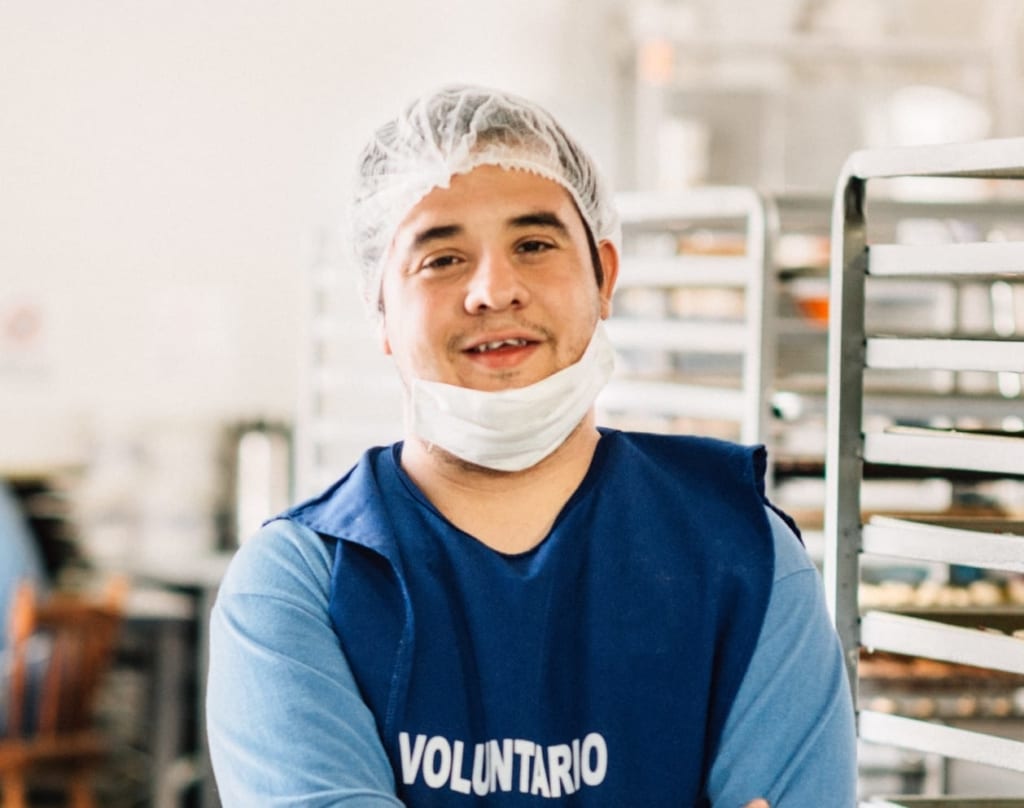
Impact Investing
To advance social change, we make strategic investments in organizations and initiatives that complement our grantmaking and align with our mission.
Strengthening Communities

Impact investing is one the ways we support the health and vibrancy of our local communities. For communities to thrive, access to basic financial services, affordable credit and investment capital are a necessity, yet historically, underserved communities have little to no access to capital. This gap continues to widen with higher interest rates, making loans more expensive and difficult to access.
Community Development Financial Institutions (CDFIs) provide equitable access to capital and financial services, ensuring that all communities have opportunities to prosper and grow. Based in the communities they serve, CDFIs are required to direct capital toward individuals and efforts that experience structural barriers to credit access, providing a vital lifeline to small business owners, homeowners and environmental efforts.
Our priorities for a CDFI investment include a commitment to serving women and people of color in urban, rural and tribal communities in both Oregon and Washington. Craft3 aligned with our criteria and with a $1 million investment in the CDFI's Community Impact Investment Notes, we are investing in transformative work throughout the Pacific Northwest. One-hundred percent of Note proceeds are lent to Craft3 borrowers, including entrepreneurs, nonprofits, individuals and others who do no typically have access to financing. These investments help borrowers make their homes more energy efficient, start or expand a business to create jobs, or secure critical lands to preserve habitat and strengthen the economic, ecological and family resiliency in the region.
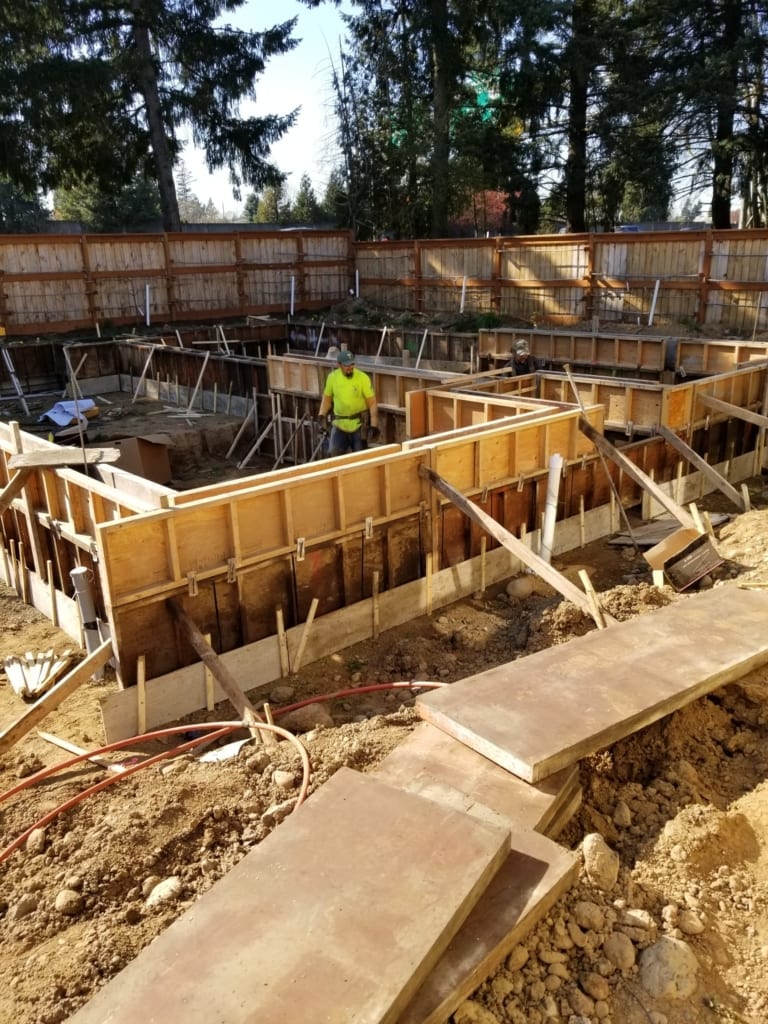
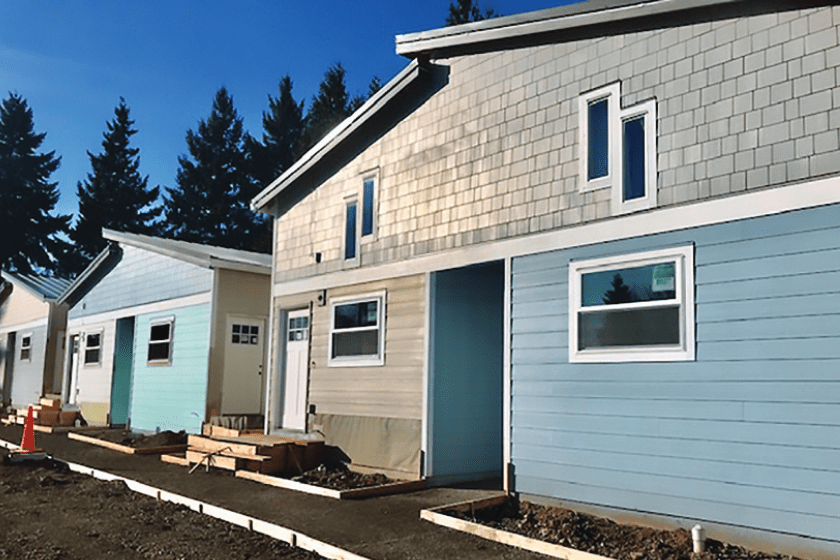
2023 Contributions

2020 Grants


